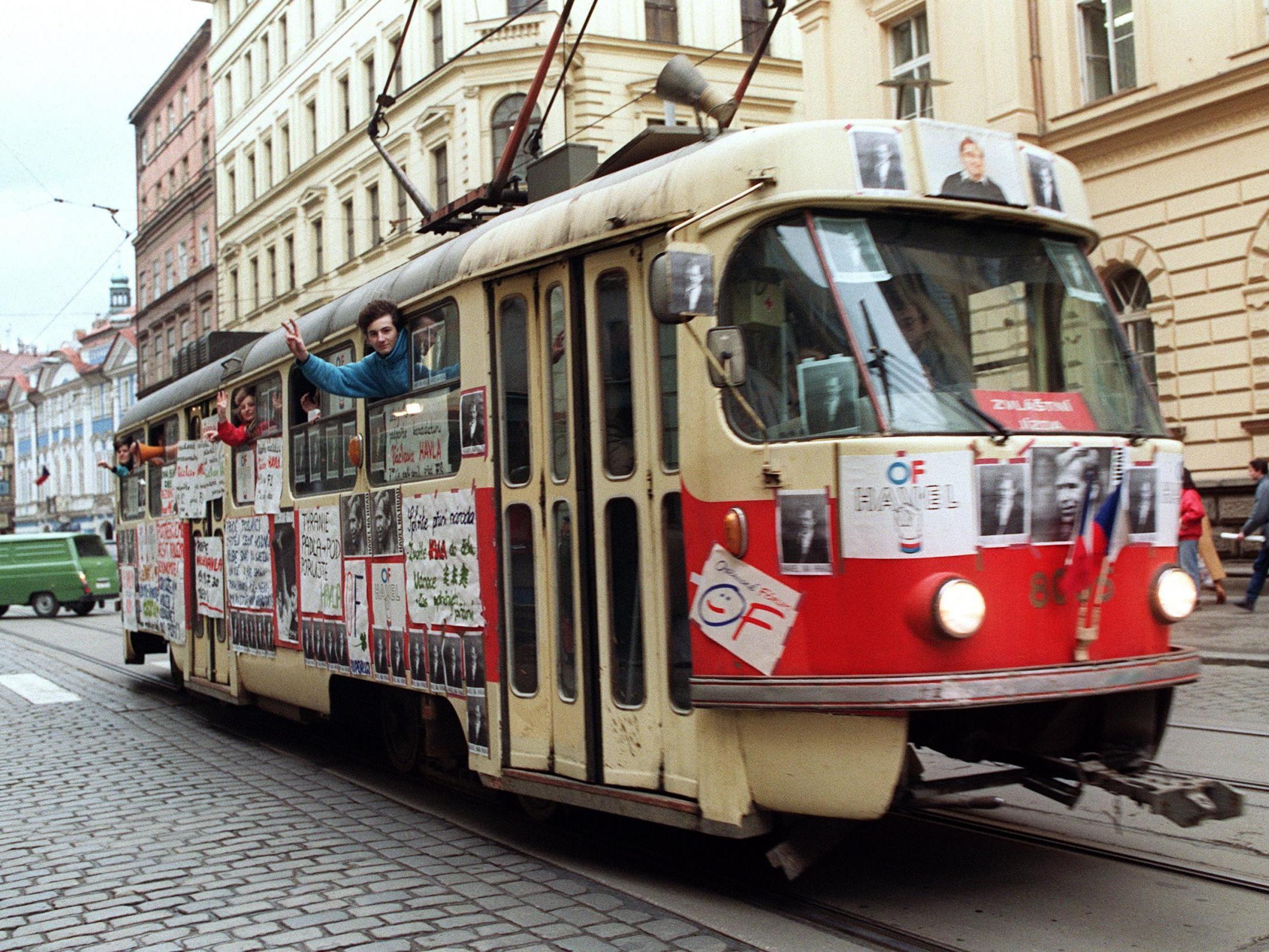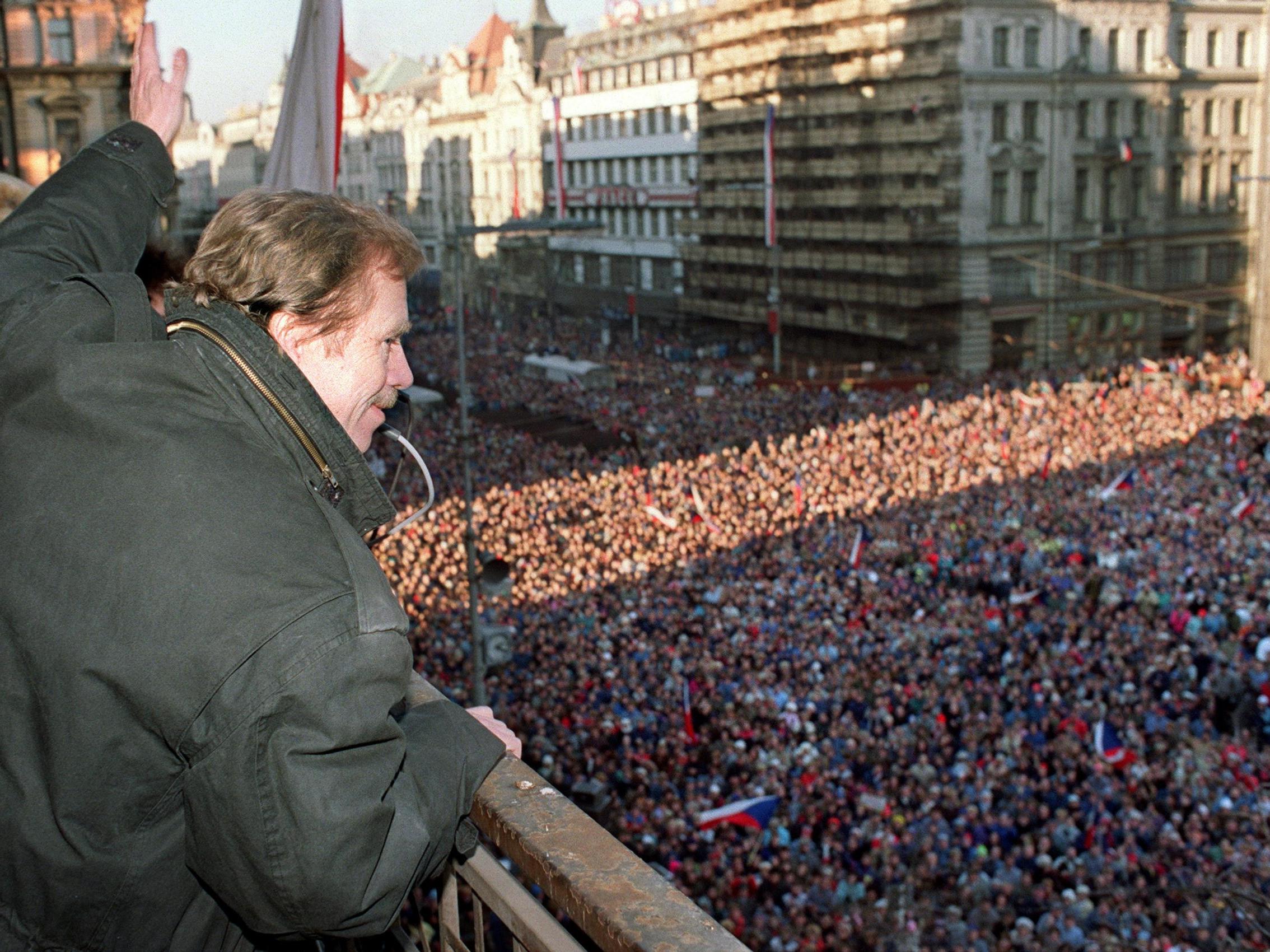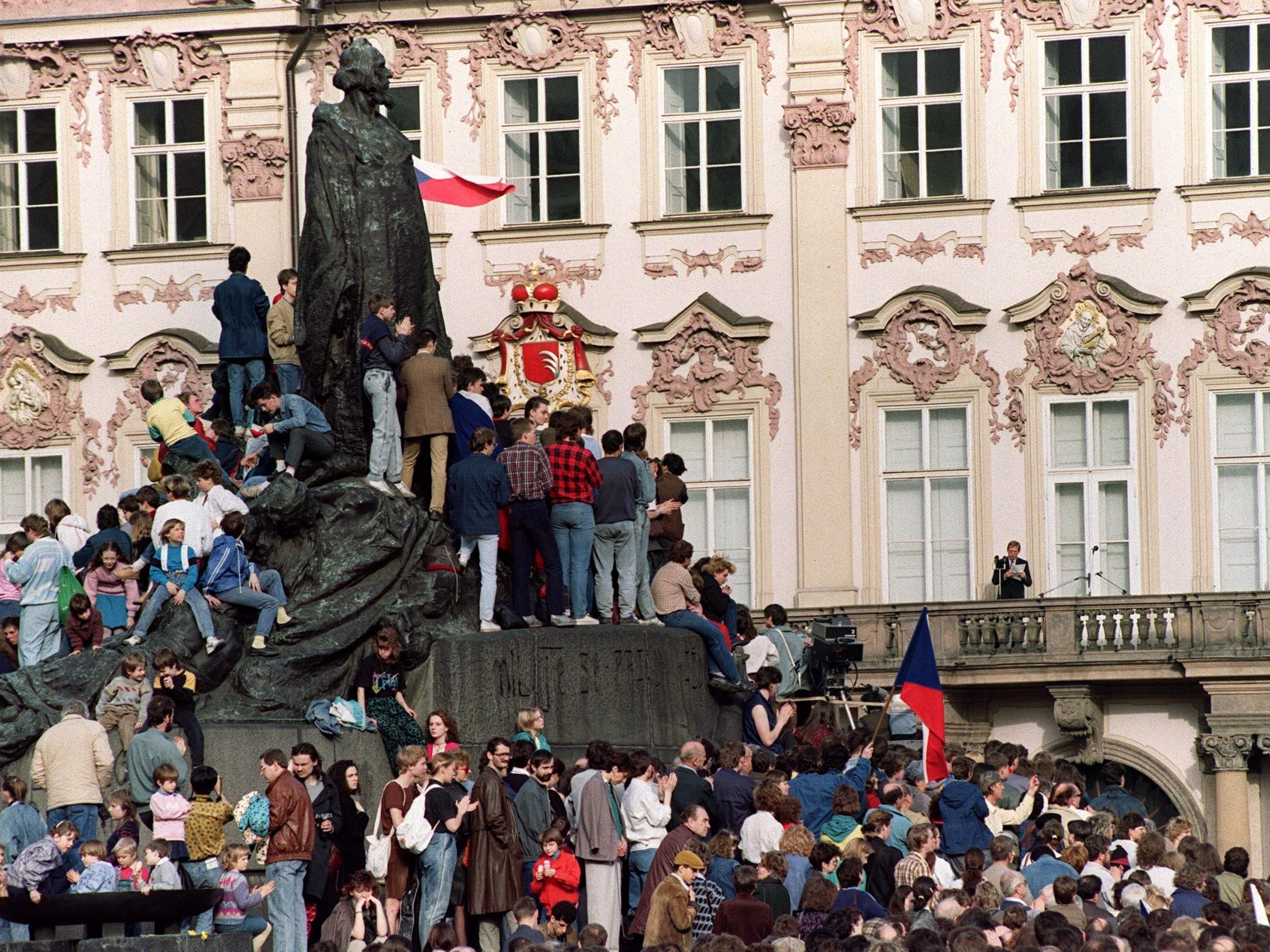Velvet Revolution: Czechs and Slovaks celebrate anniversary of fall of communism and triumph of Vaclav Havel
Peaceful student uprising brought oppressive rule to end, swept dissident playwright to power and spelled doom for Soviet Union in 1989

Citizens of the former Czechoslovakia will honour the anniversary of the Velvet Revolution this weekend.
The uprising, entirely peaceful in spirit, brought about the end of 41 years of one-party communist rule and saw the election of playwright-turned dissident Vaclav Havel as the country’s first democratically-elected president in decades.
The revolution began on 17 November 1989 with the gathering of thousands of undergraduates from the Socialist Union of Youth on campus in Prague to honour International Student’s Day, an occasion taking place precisely 50 years on from the Nazis storming the city’s universities.
Fired up by speeches against state oppression and poor living standards, the students marched to Wenceslas Square where they were met by a brutal crackdown on Narodni Street, riot police blocking off alleyways and potential escape routes and severely beating the participants for their defiance.
A secret policeman, Ludvik Zifcak, was seen lying on the ground and was assumed to have been killed, a rumour that served to fuel the fire. In truth, he was simply overcome with emotion.
The violence inspired a popular national protest movement over the coming weeks, its participants optimistic of achieving real change after the Berlin Wall had been toppled in East Germany earlier that month but wary of their cause being abruptly curtailed as the liberalising reforms of the Prague Spring had been in August 1968.
They could hardly have expected to achieve the aim before the year was out and yet that is precisely what happened, all without a single fatality taking place.
A collection of theatre students who had taken part followed their actions by going on strike, plastering the city's walls, statues and trams with hand-drawn posters in a bold affront to state censors. Their actions in Prague were mirrored with gestures of solidarity by their compatriots in Bratislava, Brno and Ostrava.
Havel, a critic of communism through the prism of absurdity in his plays The Garden Party (1963) and The Memorandum (1965) who had frequently been imprisoned for his troubles, now formed the Civic Forum to campaign for freedom, bringing together a number of dissident tribes under one umbrella.

By 20 November, 500,000 protesters were flooding the streets of the capital every day to protest the Communist Party of Czechoslovakia and call for the release of political prisoners. Civic Forum met with prime minister Ladislav Adamec that day, the leader compromised by his sympathy but unable to convince his cabinet to make concessions.
Cardinal Frantisek Tomasek’s decision to back the students threw the weight of the Catholic Church behind their cause as Communist Party general secretary Milos Jakes appeared on television appealing for order and threatening to deploy his “People’s Militia” to counter disorder, indicative of his desperation.
By 24 November, Jakes and the rest of the party hierarchy had been forced to resign, the communists finally admitting defeat and releasing their grip on power, unable to cope with the vocal majorities in the streets and the rolling series of general strikes taking place every day.
Jakes was succeeded by the more moderate Karel Urbanek but the writing was on the wall.
On 27 November, the Ministry of Culture released anti-communist literature into public libraries, a gesture that meant the end of artistic censorship and a crucial victory for the students seeking greater freedom of expression. This was followed two days later by the Federal Assembly altering the constitution so that it no longer enshrined the Communist Party’s “leading role” in Czechoslovak life in law.
On 10 December, president Gustav Husak swore in a new government, the first not dominated by the communists since 1948. His resignation shortly afterwards paved the way for Alexander Dubcek to become speaker of the federal parliament and Vaclav Havel to sweep to power on a wave of euphoria on 29 December 1989.

Havel’s government was able to quickly lift restrictions on the media, on freedom of speech and on travel, removing the 73,500 Soviet troops for Czechoslovak territory and building a democratic, open nation, an example for other satellite states of the rapidly disintegrating USSR to look up to.
After the Soviet Union was finally dissolved two years later - which Czechoslovakia’s newfound freedom did a great deal to bring about - the country split in two in the similarly peaceful Velvet Divorce of 1 January 1993.
While adults in the Czech Republic and Slovakia remember their history all too well, whole generations have since grown up knowing only liberty and consumer-capitalism and faced criticism for their lack of interest in political activism.
In their defence, the balcony of the Melantrich publishing house from which Havel once delivered his historic addresses is now a branch of Marks & Spencer, underlining just how much Prague has changed in less than three decades.
To address the problem, filmmakers Tatana Markova and Miroslav Trejtnar produced What to Tell the Kids?, a short animated film to mark the 25th anniversary in 2014 in order to educate young children on the principles their parents fought for.
Even if the younger generation does need the occasional reminder of its significance, the Velvet Revolution proved to the world that bloodless transitions of power were possible, an extraordinary achievement and a testament to the temperament of the people.
Join our commenting forum
Join thought-provoking conversations, follow other Independent readers and see their replies
Comments